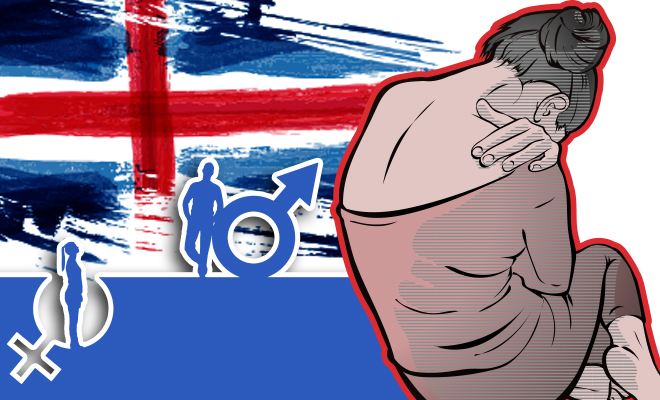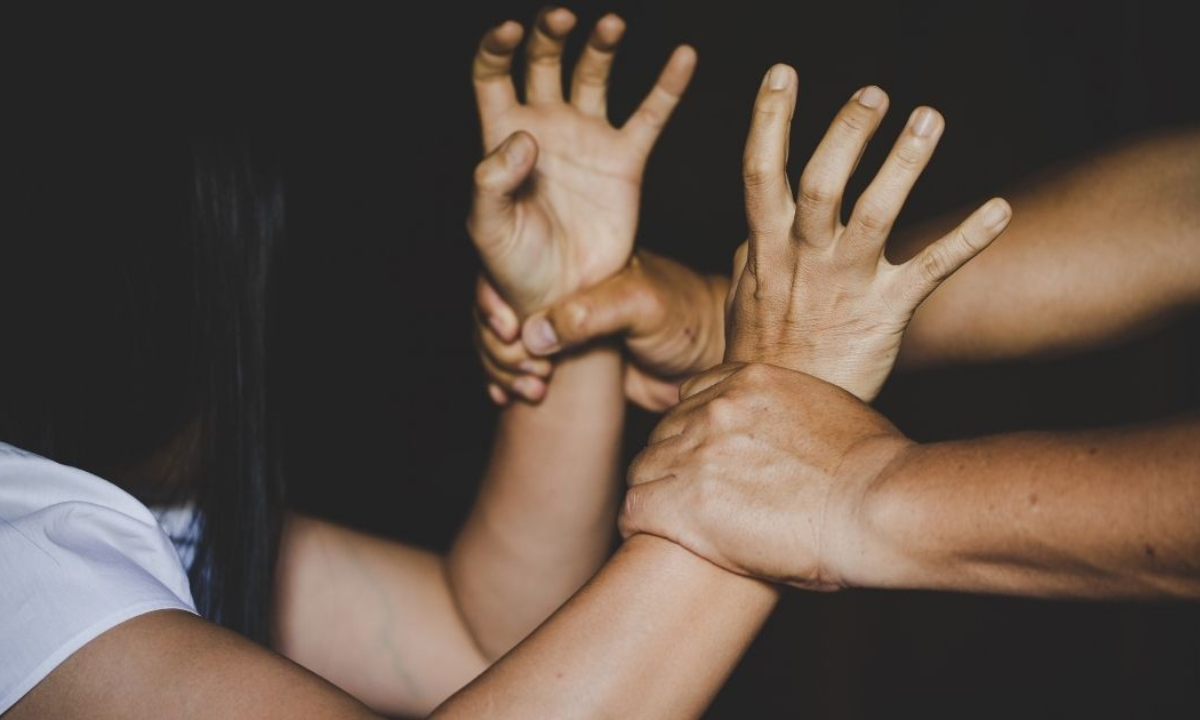Iceland Has Been Consistently Leading The Gender Gap Index But Women’s Economic Empowerment Has Seen An Increase In Gender-Based Violence

For women in India and several other countries, our rights often seem like a consolation prize given to kids who participate in the competition, just to make them feel, well, consoled. We don’t have much support because the gender-gap is still wide and there haven’t been fierce efforts to close it. We still earn less than men and pay more tax on hygiene products. Recently, a gang-rape survivor got arrested while somewhere a judge gave bail to a rapist because he thought it was “unbecoming” of a woman to sleep after being raped. And then when we come across the laws of Iceland, the world believes that it is what paradise looks like, at least to us women.
Iceland has been leading the World Economic Forum’s Gender Gap Index for the past 11 years and its equality driven laws could be a reason. It was right back in 1908 when for the first time Icelandic women found representation in politics. Decades later, in 1982, the Women’s Alliance was formed and the consequent year, women’s representation took a major leap. In 2016, 48% of elected representatives in parliament were women. Today, the country is spearheaded by PM Katrín Jakobsdóttir. Iceland believes that equal pay can help empower women and has implemented Equal Pay Standard through legislation.
While we as a country aren’t even there yet, judicially speaking, Iceland isn’t quite the paradise the world thinks it is. Gyda Margret Petursdottir, Professor of Gender Studies, University of Iceland said, “Iceland is not a safe haven for women. When you have gender-based violence in such great proportion you cannot look at a country as a safe haven.”
https://www.instagram.com/p/CCmQyV2gE-A/
Recently, the deaths of two women due to suspected domestic violence brought the issue of the prevalence of Intimate Partner Violence to the forefront. Add to that the findings of a recent study and we know things aren’t hunky-dory as it seems. The study published in Scandinavian Journal of Public Health reveals: “According to the Injury Severity Score, physical injuries were mostly minor (92.4%) and mainly located on the upper body (64.3%) – namely, face, head and neck (37.1%) and upper limbs (27.2%). The majority of injuries were superficial (76.2%) and punching (29.7%), shoving (17.8%), kicking (10.5%) and attempted strangulation (9.8%) were the most common types of aetiology.”
The study did not just show that IPV is quite prevalent in Iceland but went into the heart-wrenching details of how it is done. And no, it’s not like the country is trying to hide these things. In fact, they believe that the impression of it being women’s paradise often masks the several problems that need to be worked on, gender-based violence and sexual harassment included. “Sometimes they say that if you have some sort of gender-based violence that’s always going to mean that you won’t have equality between men and women. So if you measure gender-based violence that’s really the best measure,” Gyda Margret Petursdottir added.
Allegedly two women have died in Iceland due to domestic violence since the COVID19 outbreak with the consequent social distancing and quarantine measures. This virus is revealing injustice in your society on an unprecedented scale. #Covid_19 #COVID19
— Karl F. Sævarsson (@karlsaevarsson) April 6, 2020
According to surveys, 50% of murders of Icelandic women have been at the hands of their male partners. But several domestic violence cases don’t lead to death or even get reported. Why? Because Iceland’s judicial system is infamous for not ruling in favour of women. In fact, one in four Icelandic women has experienced sexual harassment at least once, according to a 2018 survey by the University of Iceland. “Historically, the justice system has failed our women. There is always an excuse, and abusers are not convicted, especially when they are well-known,” Sigþrúður Guðmundsdóttir who was appointed as the Reykjavík Police Commissioner told Grapevine.
What could be the reason for this “normadic paradox”? While women are getting empowered and finding representation, gender-based violence is increasing and it’s no coincidence. Several researchers vouch for the theory that women’s economic empowerment often results in an increase in violence. The reason is that while the laws are supporting women’s progress, socially those ideas aren’t implemented and gender-parity still exists. Men still feel superior and they find their toxic male egos threatened and insecure as women find their voices. Another reason for the increase in numbers could actually mean that more women are coming forward to report the crime. In India, domestic violence is very common and usually goes unreported.
ALSO READ: The Dalai Lama Said That The World Needs More Women Leaders. We Completely Agree But Not Only Because We’re ‘Gentle’
This is why economic empowerment is not enough unless a certain level of social and judicial support is achieved to protect women from hurt male egos. Vigdis Finnbogadottir, Iceland’s ex-President and world’s first democratically elected female head of state said, “Iceland is well along the way for gender equality but it is not there.”

















